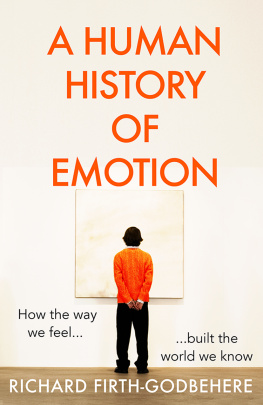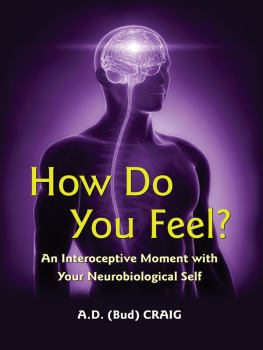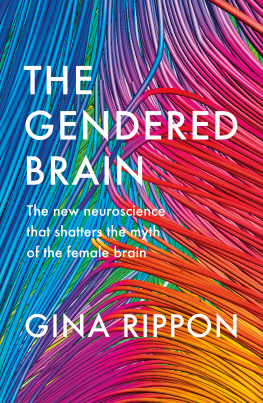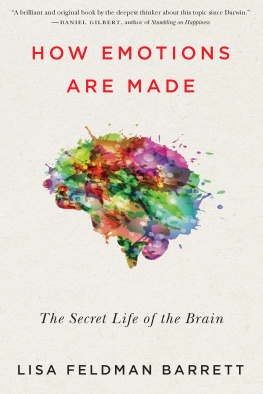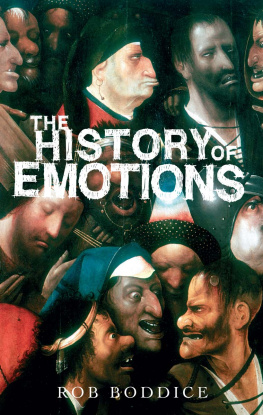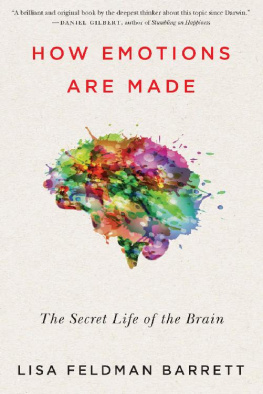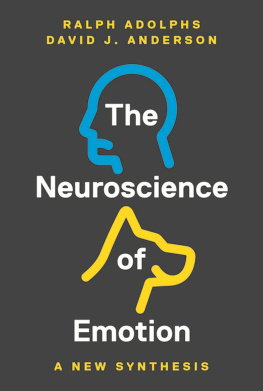Richard Firth-Godbehere, PhD, one of the worlds leading experts on disgust and emotions, is an independent researcher and consultant in the history, language, science and philosophy of emotions, and an Honorary Research Fellow at the Centre for the History of the Emotions, Queen Mary University of London. He received a first-class degree from the University of London, during which time he won two awards for academic excellence, alongside a Masters (MPhil) from the University of Cambridge and a PhD From Queen Mary, University of London, where he was a Wellcome Trust Scholar.
His award-winning interdisciplinary research walks the line between history, psychology, linguistics, and futurism. He examines how understandings of emotions change over time and how these changes can influence the wider world.

Australia
HarperCollins Publishers Australia Pty. Ltd.
Level 13, 201 Elizabeth Street
Sydney, NSW 2000, Australia
www.harpercollins.com.au
Canada
HarperCollins Canada
Bay Adelaide Centre, East Tower
22 Adelaide Street West, 41st Floor
Toronto, Ontario M5H 4E3, Canada
www.harpercollins.ca
India
HarperCollins India
A 75, Sector 57
Noida, Uttar Pradesh 201 301, India
www.harpercollins.co.in
New Zealand
HarperCollins Publishers New Zealand
Unit D1, 63 Apollo Drive
Rosedale 0632
Auckland, New Zealand
www.harpercollins.co.nz
United Kingdom
HarperCollins Publishers Ltd.
1 London Bridge Street
London SE1 9GF, UK
www.harpercollins.co.uk
United States
HarperCollins Publishers Inc.
195 Broadway
New York, NY 10007
www.harpercollins.com
Writing this book has been challenging, rewarding, frustrating, elevating, and, most important, life-changing. Im pretty sure I couldnt have done it without a lot of support, not least from my amazing wife and fellow life traveler, Dawn Firth-Godbehere. You are my rock, my night and my day.
Id also like to thank my familymy mom, Pauline Hart, along with my brothers, Peter, Andrew, and David, and my sister, Jayne, who have been endlessly supportive no matter what mad direction my life takes.
I also have to thank my agent, Ben Dunn, who read an article online that was causing trouble in the AI community and thought, This guys got a book or two in him. It was a bold decision. Thanks are also due to my US editor, Ian Straus, whose extraordinary patience with this first-time writer helped shape a book of which Im rather proud.
Last but not least, I want to thank the people responsible for getting me to the point where I could do something like thismy PhD supervisors, Professor Thomas Dixon and Dr. Elena Carrera; all the people at the Centre for the History of the Emotions, Queen Mary University of London; the Wellcome Trust, for supporting my early disgusting research; and finally, my onetime undergraduate tutor and now friend, Sarah Lambert, a scholar of unshakable intellect who does not suffer fools gladly but somehow gladly suffers me.
Thank you all.
Lets begin with some big ideas. History is full of ideas about emotionswhat they are, where they came from, how they ought to be expressed and controlled. These ideas helped form the religions and philosophies that are still with us today. In many cases, ideas about feelings had an impact that shaped history. But before we get to the chapters about ancient India, the New Testament era, and the ideas of saints and prophets, Im going to start at the beginningor at least the beginning we know about, which gave rise to some of the first ideas about emotions on record. It means that, as often is the case, we need to travel back to ancient Greece.
Plato and Socrates
Roughly 399 years before Jesus was born, a twentysomething man lay ill in bed.
Plato was not just physically daunting; he was also an intellectual giant. Later in life, he founded a school so important that its namethe Academyis still used to this day to describe seats of learning. In his Academy, Plato wrote works of philosophy. But he didnt write long prose. He wrote a series of debates that came to be known as dialogues. In all but one of these, the main speaker was his old tutor, Socrates, whom he loved dearly.
Its hard to overestimate how important these dialogues were. More than two millennia later, the philosopher and mathematician Alfred North Whitehead described all the philosophy that came after them as a series of footnotes to Plato. But without the events of that deeply emotional day when Plato lay sick in bed in 399 BCE , and those that led up to them, he might have just been another of the hundreds of great thinkers who have been lost to time. Because on the same day that Plato was nursing his illness, Platos teacher, Socrates, was being executed. Platos feelings about that were, well, complicated.
Feeling Platonic
The Greeks called emotions path, meaning experience or suffering. Whether it was one or the other depended on which path you were experiencing (or suffering). Plato believed that path were disturbances in our souls, ripples caused by external events or sensations that knock you off balance and disturb your calm. But to Plato, souls were more than just the bit of us that isnt flesh.
Souls were important to Plato because they were the human part of an idea that was central to his philosophy. He didnt think that the world we see around us is all there is. He thought that everything, from humans to trees to chairs, was just an imperfect version of what he called the wise cosmos (ksmos noets), better known as forms. He believed we are all born with an inherent knowledge of these perfect forms. Thats why we can recognize that two different objectssay, a tavern stool and a throneare both fundamentally chairs. Both map onto a remembered form of a perfect chair. Plato likened our experience of reality to the experience of people who live in a cave seeing shadows cast on a wall by events outside. What we think is real is just a shadow. In Platos view, our souls are the realityour perfect form dancing in the sunlight at the cave entrance. Our bodies are just the shadows they cast. When we feel path, its the result of something perturbing our souls, causing sensations in our bodies and making the shadows twist unexpectedly. What confused Plato was how on earth people could feel two different emotions at once. How could someone feel both terrified and brave at the same time, desiring to fight while wanting to flee, for example, like soldiers in a battle? The answer he arrived at was that we have more than one part to our souls.
He reasoned that because animals have souls but cant think in complex ways, there must be one type of soul for animals and another type for humans and gods. The god soul was pure reason and couldnt be perturbed by path directly. He called this soul the lgos.
Lgos is a hard word to translate. It means thought or word, or perhaps the ability to form words into thoughts. Most important, it has a divine element. A useful illustration of this concept appears in John 1:1, in the New Testament. Originally written in Greek, it says (in the King James Version), In the beginning was the Word [lgos], and the Word [lgos] was with God, and the Word [lgos] was God. If youve ever wondered how God could be described as a word, you may (understandably) be taking this passage a bit too literally. God, here, is really being described as a thought, a soul of pure reason, an ability to know things. That was Platos

